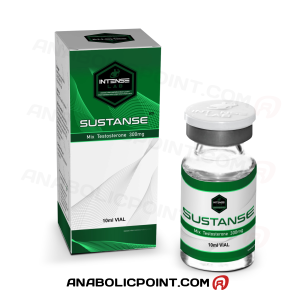Your basket is currently empty!
Beta-Alanine: The Ultimate Guide to Boosting Workout Performance and Reducing Fatigue
Beta-alanine is a widely-used supplement in the fitness world, known for its role in enhancing exercise performance, increasing muscle endurance, and delaying muscle fatigue. Whether you’re an elite athlete, a bodybuilder, or someone just looking to get the most out of your workout, beta-alanine could be a powerful addition to your supplement routine. In this comprehensive guide, we’ll explore everything you need to know about beta-alanine, including its science, benefits, side effects, dosage recommendations, and more.
What is Beta-Alanine?
Beta-alanine is a naturally occurring amino acid that differs from other amino acids in that it is not directly involved in protein synthesis. Instead, it plays a role in synthesizing carnosine, a compound that acts as a buffer for muscle pH levels during exercise. When we engage in intense physical activity, our muscles produce lactic acid, leading to a drop in pH levels and resulting in the familiar sensation of muscle “burn” and fatigue. By increasing carnosine levels, beta-alanine helps to buffer against this acidity, allowing us to perform at higher intensities for longer periods.
How Beta-Alanine Works in the Body
Beta-alanine’s primary function is to increase intramuscular carnosine levels. Carnosine is stored in muscles and released during high-intensity activities to help stabilize pH levels. Without sufficient buffering, the pH in muscle cells would drop, causing acid buildup, muscle fatigue, and performance decline.
When beta-alanine is ingested, it combines with another amino acid, histidine, to form carnosine. Studies have shown that supplementing with beta-alanine can increase muscle carnosine concentrations by up to 80%, significantly enhancing the muscle’s ability to manage acidic environments and delay fatigue.
The Benefits of Beta-Alanine Supplementation
1 Delayed Muscle Fatigue
The buffering capacity of carnosine is directly related to delayed muscle fatigue. By reducing lactic acid accumulation, beta-alanine enables athletes to extend high-intensity efforts, improving overall endurance.
2 Improved Performance in High-Intensity Exercise
Beta-alanine supplementation is particularly beneficial for high-intensity exercises, including weightlifting, sprinting, and competitive sports. Studies have shown that beta-alanine can improve performance in activities lasting between 1 and 4 minutes, where lactic acid buildup is significant.
3 Increased Muscle Mass
While beta-alanine does not directly stimulate muscle growth, it can indirectly contribute by allowing individuals to perform more reps, lift heavier weights, or engage in longer training sessions. This increased workload can enhance muscle hypertrophy over time.
4 Enhanced Athletic Performance
For athletes, beta-alanine supplementation can provide a competitive edge. Its effects on reducing fatigue and boosting endurance are valuable for sports that involve repeated high-intensity efforts, such as soccer, basketball, and mixed martial arts.
Who Can Benefit from Beta-Alanine?
Beta-alanine is a versatile supplement that can benefit a wide range of individuals:
- Athletes and Bodybuilders: Anyone engaged in strength training or sports that involve short bursts of high-intensity effort can benefit from increased endurance and delayed muscle fatigue.
- Endurance Athletes: Runners, cyclists, and other endurance athletes can benefit from improved buffering capacity, although beta-alanine may be more effective for short to medium endurance events.
- Fitness Enthusiasts: For general gym-goers, beta-alanine can help to extend training sessions, improve performance, and provide better overall workout quality.
How to Use Beta-Alanine for Optimal Results
1 Recommended Dosage
The typical dosage for beta-alanine is between 2 to 5 grams per day. It’s recommended to start with a lower dose to assess tolerance, as some individuals may experience a tingling sensation known as paresthesia, which can be uncomfortable at higher doses.
2 Timing of Beta-Alanine Supplementation
Unlike other performance-enhancing supplements, beta-alanine doesn’t need to be taken immediately before a workout. The effects of beta-alanine are cumulative, so consistency is more important than timing. Taking it daily will allow carnosine levels to build up in muscle tissue over time.
3 Beta-Alanine Loading Phase
Some athletes opt for a “loading phase,” taking 6 grams daily for 4 to 6 weeks to rapidly increase muscle carnosine stores. After this period, they maintain levels with a lower dose of around 2 grams per day.
Potential Side Effects and Safety
Beta-alanine is generally considered safe for most individuals, but there are some potential side effects:
- Paresthesia: The most common side effect of beta-alanine is a tingling sensation, usually in the face, neck, and hands. Although harmless, this sensation can be uncomfortable. Dividing the dosage or taking beta-alanine with food can help reduce this effect.
- Long-term Safety: Studies on the long-term use of beta-alanine have shown no serious adverse effects, but it’s recommended to cycle off periodically if using it at high doses.
Combining Beta-Alanine with Other Supplements
Beta-alanine can be safely combined with various other supplements to enhance workout performance and overall health. Some popular combinations include:
- Beta-Alanine and Creatine: Creatine is a powerful supplement for strength and power, while beta-alanine enhances endurance. Together, they create a balanced approach to improving both anaerobic and aerobic performance.
- Beta-Alanine and BCAAs: Branched-chain amino acids (BCAAs) aid in muscle recovery, and when combined with beta-alanine, they can help improve workout quality and reduce muscle soreness.
- Beta-Alanine and Citrulline Malate: Citrulline malate increases blood flow, providing muscles with better oxygen and nutrient supply. Combined with beta-alanine, this pairing can further delay fatigue during intense workouts.
10 Most Common Questions About Beta-Alanine
1. What is beta-alanine used for?
Beta-alanine is used primarily to enhance workout performance by delaying muscle fatigue, improving endurance, and allowing athletes to perform high-intensity activities for longer periods.
2. How does beta-alanine work?
Beta-alanine works by increasing muscle carnosine levels, which buffer against lactic acid buildup during exercise, allowing muscles to perform longer before fatiguing.
3. Does beta-alanine build muscle?
While beta-alanine does not directly cause muscle growth, it can help by enabling athletes to train harder and longer, leading to greater muscle gains over time.
4. What are the side effects of beta-alanine?
The most common side effect is a tingling sensation called paresthesia. It is harmless and can be managed by splitting doses or taking beta-alanine with food.
5. When should I take beta-alanine?
Timing is less critical for beta-alanine than consistency. Daily use, regardless of workout timing, allows muscle carnosine levels to build over time.
6. Can I combine beta-alanine with creatine?
Yes, combining beta-alanine with creatine is common and can offer complementary benefits for strength, endurance, and overall performance.
7. How long does it take for beta-alanine to work?
Effects can be felt within 2 to 4 weeks of consistent supplementation as muscle carnosine levels gradually increase.
8. Is beta-alanine safe?
Yes, beta-alanine is considered safe for most people, although it is recommended to stay within the suggested dosage range and consult a healthcare provider if needed.
9. Is beta-alanine effective for endurance athletes?
Beta-alanine is especially effective for activities lasting between 1 and 4 minutes but may be beneficial for endurance athletes to delay fatigue in high-intensity intervals.
10. Does beta-alanine help with weight loss?
While beta-alanine does not directly affect fat loss, it can improve workout performance, allowing individuals to engage in more intense exercise, which may support weight loss efforts indirectly.
In conclusion, beta-alanine is a well-supported supplement with multiple benefits for those looking to improve exercise performance, endurance, and muscle resilience. By buffering lactic acid buildup, it enables athletes to push harder and extend their performance potential. For best results, beta-alanine should be taken consistently, and pairing it with other supplements like creatine or BCAAs can provide even greater performance benefits.












